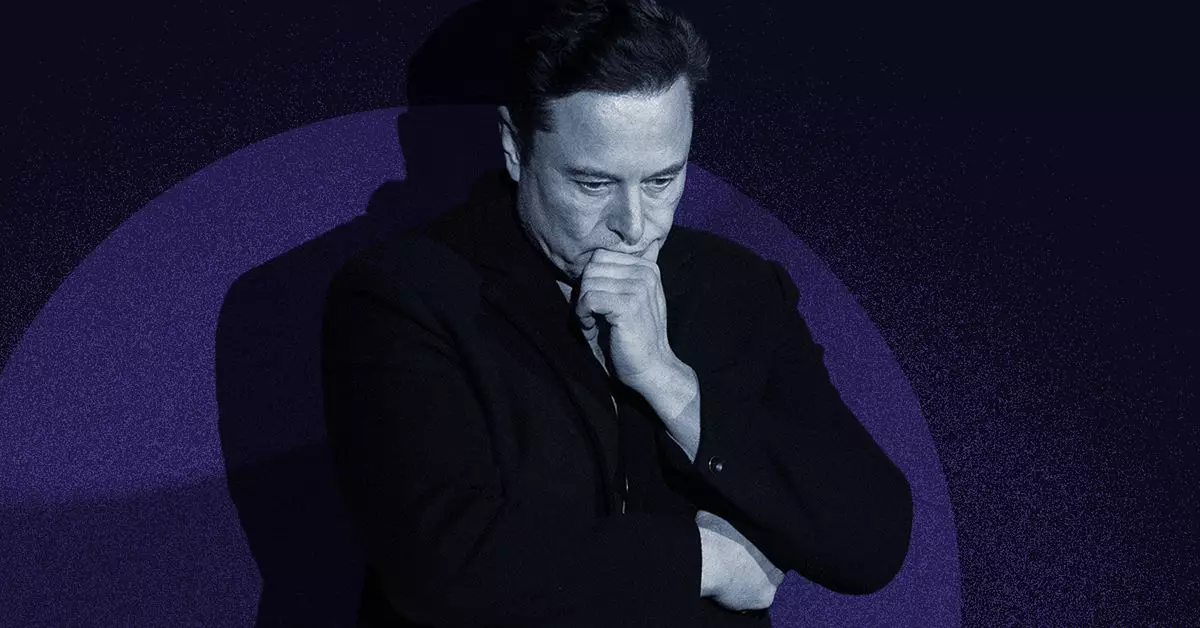In recent weeks, Elon Musk has shifted his focus from revolutionizing the electric vehicle market and space exploration to tackling what he perceives as inefficiencies within the United States government. Appointed as co-lead of the newly formed Department of Government Efficiency (DOGE), Musk has embraced a controversial approach to publicly scrutinizing government employees, arguing that many roles contribute to bureaucratic bloat. His latest campaign has sparked significant debates about the impact of social media and public figures on individuals within civil service.
Musk’s actions have drawn attention not just for their substance but for the way he utilizes social media to amplify his views. Leveraging his vast following on X (formerly Twitter), he has scrutinized individuals like Ashley Thomas, the Director of Climate Diversification at the U.S. International Development Finance Corporation. By tagging her in posts accompanied by a commentary that dismisses her role as a ‘fake job,’ Musk incites a community-driven response, leading to targeted harassment and online backlash. This behavior raises critical questions about accountability in the social media age. What ethical responsibilities do influential figures, like Musk, have when shaping public discourse, particularly around sensitive employment matters?
The fallout from Musk’s scrutiny extends beyond mere criticism—it manifests as real-world harassment that affects the personal and professional lives of those targeted. The American Federation of Government Employees has expressed alarm over the culture of fear Musk’s actions promote among federal employees. Comments from union leaders underscore the psychological toll of being thrust into the digital spotlight, transforming individuals into subjects of mockery and threats rather than objective discussions of their work.
This kind of treatment is not unprecedented; Musk’s history of targeting individuals who oppose or criticize him paints a troubling portrait of a leader using his platform to settle scores or diminish the worth of opponents. The repercussions of such actions can foster an environment where civil servants feel vulnerable and disempowered, which could, ironically, hinder the pursuit of genuine governmental efficiency.
As Musk and other figures in the DOGE seek to bring issues of government efficiency into the public sphere, it is vital to consider the consequences for civil service and governance. The promise to work transparently could easily devolve into a spectacle driven more by entertainment than effective policy-making. Should viable scrutiny of government roles serve as fodder for meme culture and ridicule, it could ultimately discourage talented individuals from pursuing positions in government—not to mention cultivate a hostile environment among those who remain.
Musk’s campaign may be framed as a populist drive for accountability, but beneath that ethos lies a potentially dangerous precedent: the normalization of online harassment as a form of political discourse. If public figures continue to wield their platforms to target individuals for public derision, the integrity of democratic processes and civil service could be jeopardized.
While the pursuit of efficiency within governmental structures is an admirable goal, Elon Musk’s tactics raise critical ethical concerns about the methods and implications of such an approach. The balance between accountability and harassment must be navigated carefully as we move forward into an increasingly interconnected and observatory digital landscape.

